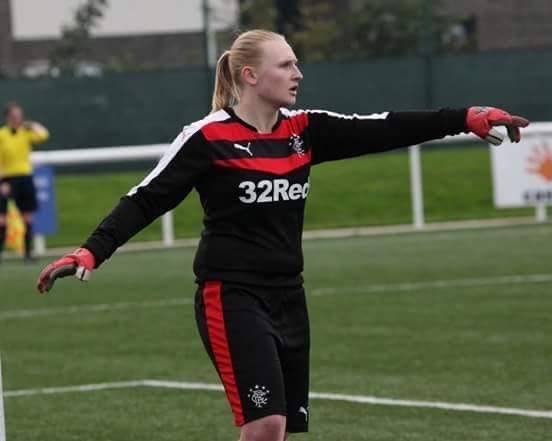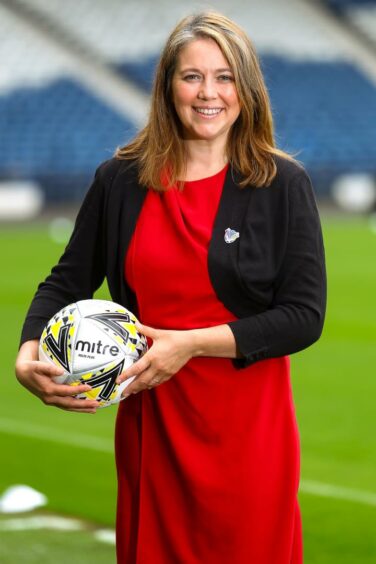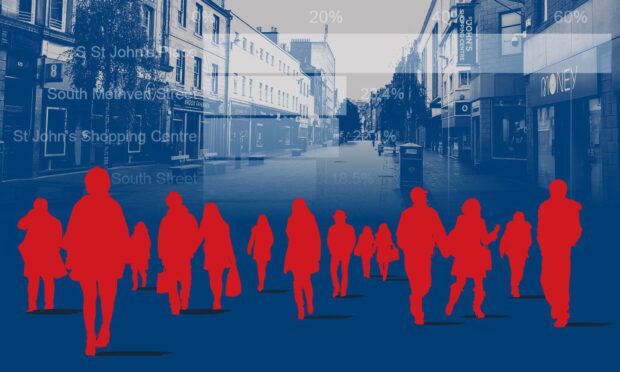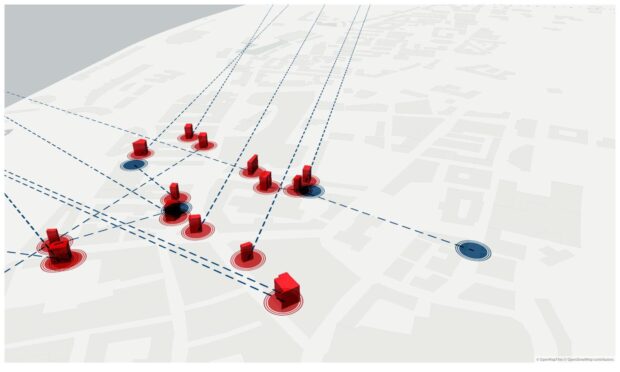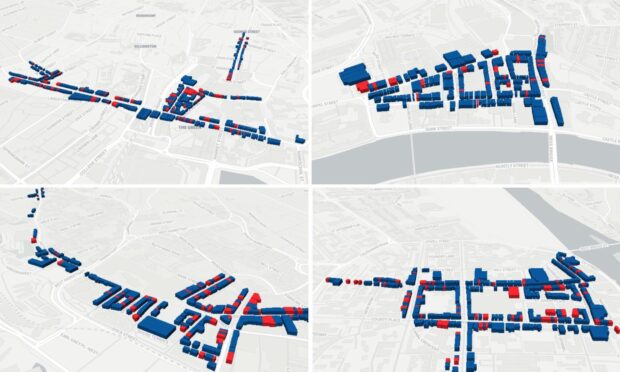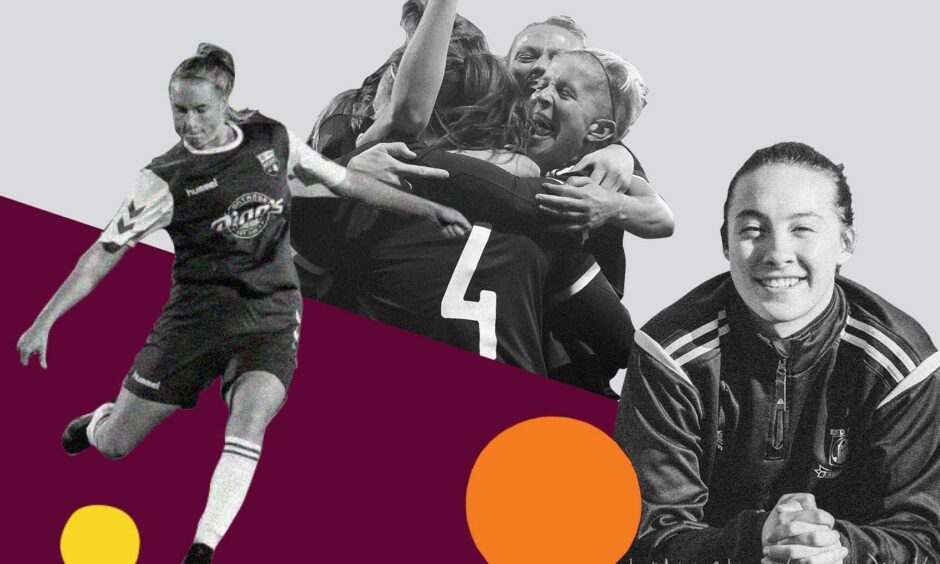
Women footballers across Tayside and Fife are facing a barrage of sexism and abuse – just for playing the game they love.
Our investigation – featuring a comprehensive survey of 119 players, officials and fans – shows the levels of sexism being faced by those involved in women’s football.
Despite the great strides made by the women’s game, many players run the gauntlet of sexist hate, sexualised comments, homophobia, body shaming and even death threats with most of the abuse coming on social media.
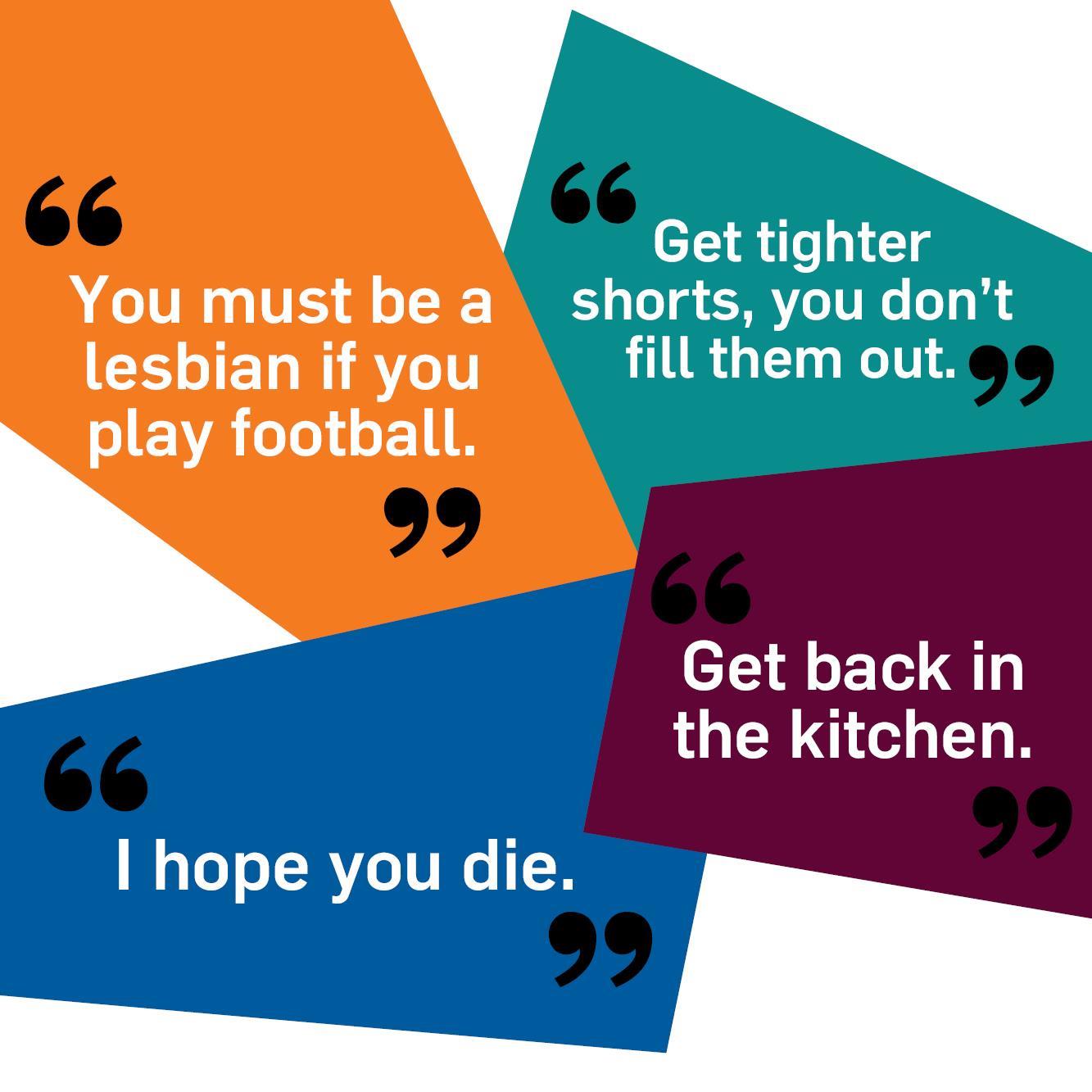
But our investigation also shows just how much women enjoy the game, saying that it brings them benefits that extend far beyond the playing pitch.
The results of our investigation come just days after the controversy surrounding the signing of David Goodwillie by Raith Rovers.
Raith manager John McGlynn admitted the club made an “enormous mistake” in thinking only about football when signing Goodwillie.
Sexism and football
Our probe uncovered harassment blighting the women and girls game across Tayside, Fife, Perthshire, Angus, Aberdeen and the north-east.
Sexism was the most common problem. Of our respondents, 68% have suffered hate – in person and online – just for playing football.
We can also reveal that sexist abuse has been normalised – with the majority of people taking no action to counter the hate, with many sadly feeling it was an everyday part of the modern game.
The findings make sobering reading for Scotland’s football chiefs, with 54% of respondents saying the football industry still does not do enough to reduce discriminatory behaviour towards women in football.
Still many barriers for women in football
The investigation found other important issues: Around one in five people believed football was poor at attracting more females to the sport.
Even after the success of Scotland’s women’s national team, many felt that women’s sports did not get as much media coverage as the men’s game – one of the main barriers to stopping women taking part in sport in general.
Most of our survey’s respondents were female, under the age of 45, from Aberdeen, Tayside, Fife, Angus, the north-east of Scotland and the Highlands.
Participants included amateur and professional players, coaches, fans, parents of players, club officials and referees.
The biggest percentage of people – almost a quarter of those surveyed – have been involved with the game for between two and five years.
‘Every day sexism’ in football is still rife
When asked if there was anything they disliked about being involved in women’s football, one respondent said: “The stigma around that all women who play football are thought to not be straight. The stigma that women’s football is rubbish compared to men’s.”
Another said: “As a female coach, I am assumed to be the first aider or secretary. Everyday sexism is still rife.”
One female respondent said: “You see it all over social media – unnecessary, derogatory comments.”
A total of 86% of people wanted to see more media coverage of the women’s sport to celebrate women’s achievements.
Women’s football in Scotland has grown steadily over the last few years, suffering a drop in the number of players only in 2020 due to the impact of Covid-19.
The number of registered female footballers has gone from 5,779 in 2016, to 6,292 in 2017, 7,469 in 2018 then hitting a historic high of 8,350 the following year.
In 2020, the number of players dropped to 5,181 due to Covid, according to Scottish Women’s Football.
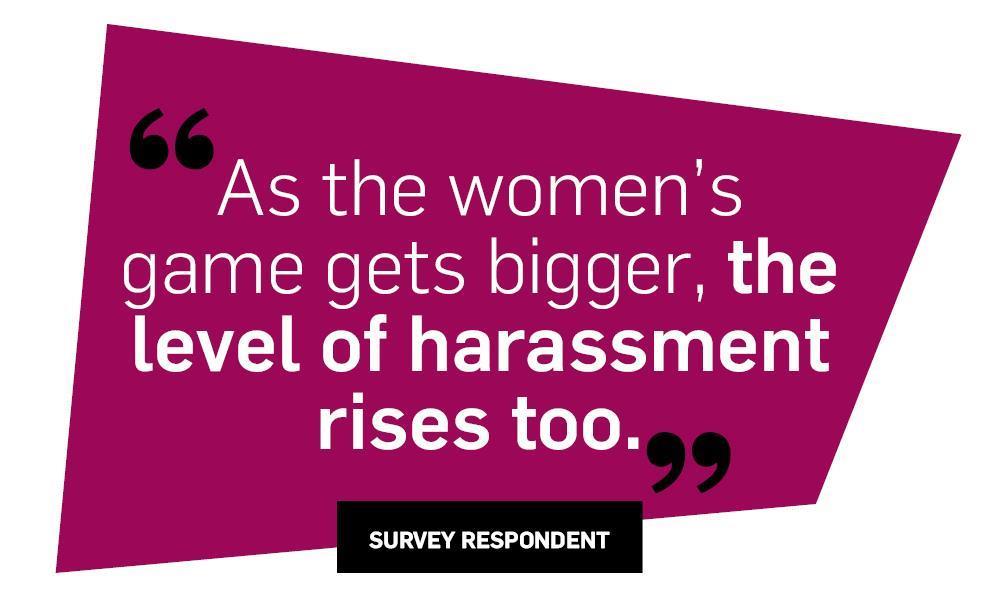 Women’s football is carved into six regions across the country. The north region covers Aberdeen, Aberdeenshire, Highland, Moray, Orkney, Shetland and the Western Isles while the east region covers Angus, Dundee, Perth & Kinross and Fife.
Women’s football is carved into six regions across the country. The north region covers Aberdeen, Aberdeenshire, Highland, Moray, Orkney, Shetland and the Western Isles while the east region covers Angus, Dundee, Perth & Kinross and Fife.
The most recent figures from Scottish Women’s Football – up to February 1 2022 – show that 1,298 female players are registered in the north, with 1,417 in the east.
Officials were unable to provide regional figures for past years but hope to compile the statistics in the near future.
One person from the survey said: “As the women’s game gets bigger, the level of harassment rises too. We need to commit as much effort to women’s football as the men’s.
“Nobody should be subject to comments of a sexual nature, or racist or gendered remarks but this must include players, referees, journalists and broadcasters.”
Football and empowerment
Despite the challenges uncovered by our probe, many women still said that football was an incredibly positive force in their lives.
Many said football helped to keep them fit, make new friends, relieve stress, bolster confidence and build team spirit.
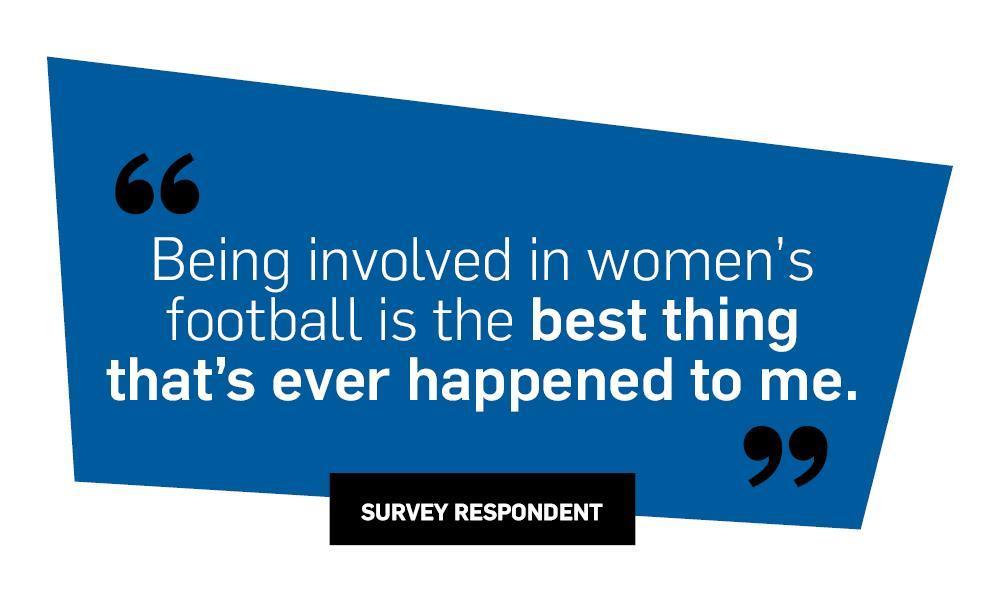
One parent in the survey said: “Being part of a football team has given my daughter self-esteem and helped her to overcome her anxiety about her disability and feeling different.
“She feels less self-conscious, and she has been empowered with confidence to reach her own goals and show other children with disabilities you can achieve your goals if you work hard enough.”
A female player said: “Being involved in women’s football is the best thing that’s ever happened to me.
“Football really makes me feel good about myself. I love football and really want to go pro.”
Goalkeeper Rachel Halbert, 24, from Kilbirnie, is part of the Her Game Too movement, a grassroots group founded by dedicated female football fans to ensure women are welcomed and respected in football.
Montrose Football Club Women were one of the first teams in Scotland to sign up to the campaign.
Former Rangers, Motherwell and Kilmarnock player Rachel said: “There is still the ‘get back into the kitchen’ attitude.
“I was once abused by wee kids when I was playing against Forfar. They were shouting ‘you are rubbish, that’s not real football’ and that kind of thing.
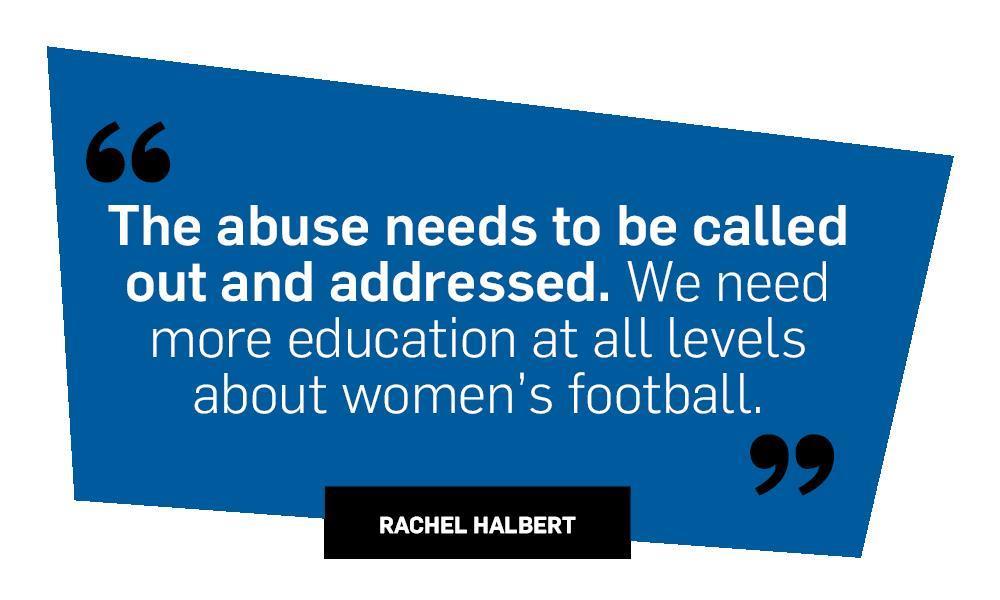
“I have pals who have received severe abuse on social media – people telling them ‘I hope you die, I hope you break your ankles’.
“Sometimes it can be quite sexualised. One women’s team advertised for a massage therapist and a lot of older men started posting sleazy, degrading comments.
“The abuse needs to be called out and addressed. We need more education at all levels about women’s football.
“There also needs to be harsher punishments for trolls who abuse women in the game and more encouragement for families to take daughters to games.”
We discovered that women sadly seem to face an unlevel playing field and are more likely to receive abuse relating to their size and shape.
Also, equal pay is an issue – male and female players at broadly the same level will not get the same pay, according to respondents.
Our survey participants highlighted the need for greater respect for women in sport and for people to call out sexism and misogyny when they see it in person or online.
Call out sexism in football
St Johnstone fan Aileen Campbell is chief executive of Scottish Women’s Football, the body responsible for the club game across the country.
Aileen, from Perth, said: “We shouldn’t lose sight of how far we have come but undoubtedly there are things that women experience which underline the misogyny and sexism that still permeates our culture.
“That’s disappointing and something we need to call out and need to tackle, whether it’s online comments about how people look or comments that are misogynistic in their tone about women’s ability to play.

“Those are still there – we need to call it out and tackle head on. Need to make sure more women are involved not just in playing but in the decision making, and the bigger, broader, wider structures of football.
“That is something that all sports have to grapple with. Football is no different in that regard. We still need to call out these outdated views and misogynistic comments when we can.
“We need to show the leadership to deal with that.”
A woman who took part in our survey had the final word on the women’s game, referring to the histrionics often seen among elite players at peak of the men’s sport.
She said: “Women rarely roll about faking injury – they’re tough and they’re sporting.”
Our online survey was carried out between December 7, 2021 and January 16, 2022. It was sent to football clubs across the north and north-east of Scotland, Tayside and Fife. We received 119 responses from players, club officials, parents and fans.
Anyone who witnesses sexist abuse, harassment or discrimination, can report it in a number of ways.
You can report discrimination within Scottish grassroots football to the Scottish Football Association.
Or search for Scottish FA Grassroots in Google Play or App store.
Also, the Her Game Too anti-sexism campaign has an anonymous online form.
If you feel the form of discrimination you witnessed either on the pitch or online could be a hate crime, you may also report it to Police Scotland via 101.
Read more from this series
Georgia Carter: Online abuse has to be taken seriously for women’s football to grow
Shelley Hague: ‘Football can be a great force for good’
Arbroath Community Sports Club Girls is real labour of love for founder Ellie
Elsie Cook: We have to speak out against sexists. We can’t let them win
Credits
Words and interviews by Sophie Goodwin and Stephen Stewart
Story design by Cheryl Livingstone
Graphics by Carly Gilchrist
Data visualisations by Emma Morrice
Survey research by Sharon Clark
Video by Drew Farrell, Kim Cessford and Gregor Aiken
